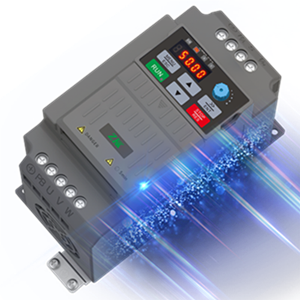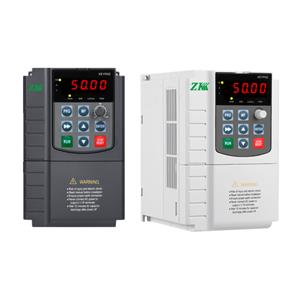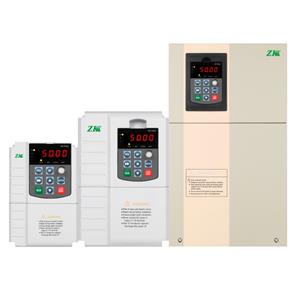Solar Pump Inverters in Sustainable Livestock Water Resource Management
In the context of modern sustainable agriculture, the incorporation of renewable energy technologies into livestock farming has emerged as a pivotal strategy for achieving both environmental and economic sustainability. Among these innovations, solar-powered water pump inverters have gained prominence as a transformative solution for optimizing water resource management in the livestock sector. This paper examines the operational principles, advantages, and practical applications of solar-powered water pump inverters in livestock water management, emphasizing their critical role in mitigating water scarcity, reducing operational expenditures, and fostering sustainable agricultural practices.
The Critical Role of Water in Livestock Farming
Water constitutes an indispensable resource in livestock farming, serving essential functions such as hydration, sanitation, temperature regulation, and feed cultivation. However, conventional water supply systems predominantly rely on grid electricity or diesel-powered pumps, which are not only cost-prohibitive but also environmentally detrimental and unreliable, particularly in remote regions. Compounded by the escalating impacts of climate change and water scarcity, these challenges underscore the necessity for innovative solutions. Solar-powered water pump inverters present a sustainable and efficient alternative to traditional water supply mechanisms.
Operational Principles of Solar-Powered Water Pump Inverters
A solar-powered water pump inverter is a technologically advanced system designed to convert solar energy into electrical energy to drive water pumps. The system comprises three primary components: photovoltaic (PV) panels, an inverter, and a water pump. PV panels capture solar radiation and generate direct current (DC) electricity, which is subsequently converted into alternating current (AC) by the inverter to operate the water pump. The inverter also modulates the pump's speed and flow rate in response to available solar energy, ensuring optimal performance under fluctuating meteorological conditions.
Advantages of Solar-Powered Water Pump Inverters in Livestock Farming
1. Energy Efficiency and Economic Viability
Solar-powered water pump inverters eliminate dependency on grid electricity or diesel, substantially reducing energy expenditures. Post-installation, these systems require minimal maintenance, offering a cost-effective and sustainable water supply solution over the long term.
2. Environmental Sustainability
By leveraging solar energy, solar-powered water pump inverters significantly curtail greenhouse gas emissions and diminish reliance on fossil fuels. This aligns with global initiatives to combat climate change and promotes environmentally responsible farming practices.
3. Operational Reliability in Remote Areas
Livestock farms are frequently situated in rural or off-grid locations with limited access to electricity. Solar-powered water pump inverters provide a dependable water supply independent of external energy sources, ensuring uninterrupted operations.
4. Adaptive Water Management
The inverter's capability to adjust the pump's speed facilitates efficient water utilization. During periods of high solar irradiance, the pump operates at maximum capacity, whereas during overcast conditions, the inverter reduces output to conserve energy.
5. Enhanced Livestock Health and Productivity
A consistent and uncontaminated water supply is paramount for livestock health. Solar-powered water pump inverters guarantee year-round access to water, thereby improving animal welfare and productivity.
Applications in Livestock Water Resource Management
1. Potable Water Supply
Solar-powered water pump inverters can extract water from wells, rivers, or reservoirs and distribute it to drinking troughs, ensuring livestock have continuous access to clean water.
2. Irrigation for Fodder Cultivation
Many livestock farms cultivate fodder to mitigate feed costs. Solar-powered water pump inverters can efficiently irrigate fodder fields, ensuring a reliable supply of nutrient-rich feed.
3. Thermoregulation Systems
In arid climates, solar-powered water pump inverters can circulate water through cooling systems, such as misters or sprinklers, to maintain optimal livestock comfort during heatwaves.
4. Waste Management
Water is essential for maintaining barn hygiene and managing manure. Solar-powered water pump inverters provide a sustainable solution for waste management, preventing environmental contamination.
Challenges and Future Directions
Despite their numerous benefits, the adoption of solar-powered water pump inverters faces several challenges, including high initial capital costs, the need for technical expertise, and variability in solar energy availability. Nonetheless, technological advancements, government incentives, and heightened awareness of sustainability are driving their widespread implementation. Future innovations, such as integrated energy storage systems and advanced smart monitoring tools, are expected to further enhance the efficiency and applicability of solar-powered water pump inverters in livestock farming.
Conclusion
Solar-powered water pump inverters represent a paradigm shift in sustainable water resource management for livestock farming. By reducing operational costs, minimizing environmental impact, and ensuring a reliable water supply, these systems significantly enhance the resilience and productivity of livestock operations. As the global community progresses toward a more sustainable future, the integration of solar-powered water pump inverters in agriculture will play a crucial role in addressing pressing challenges related to water scarcity, climate change, and food security.




